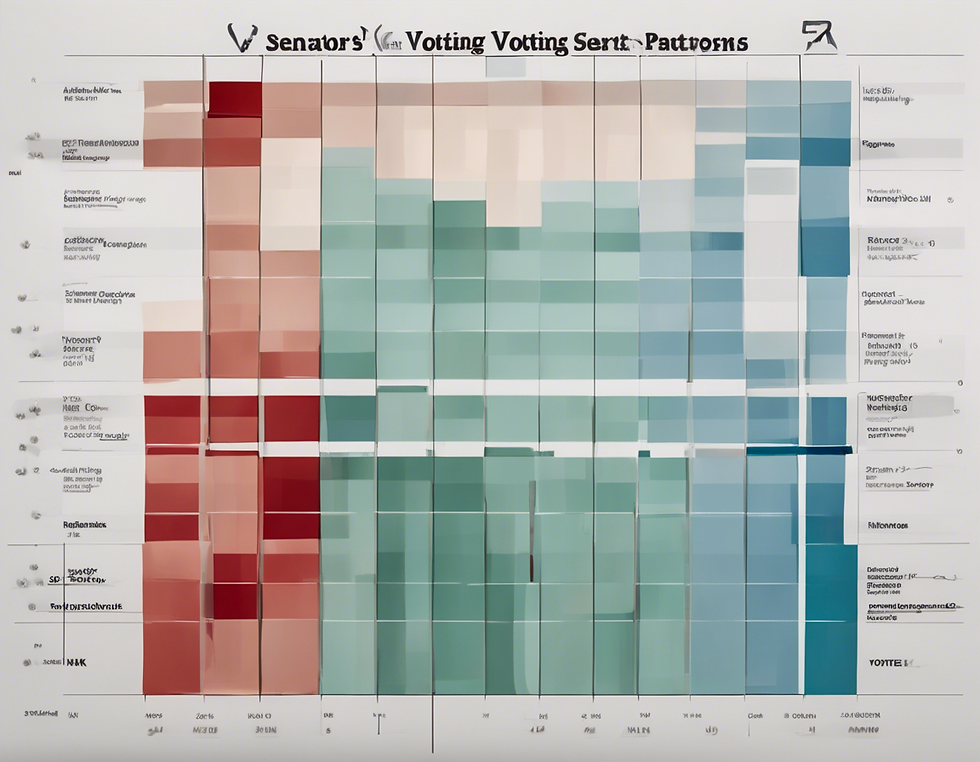Track congressmen voting trends with insightful statistics
- stevenspicer20
- Nov 21, 2024
- 2 min read
Have you ever wondered how your representatives in government are voting on key issues that affect your life? Keeping track of congressmen voting trends can provide valuable insights into their priorities and decision-making process. By analyzing voting patterns, we can better understand the stance of each congressman on various issues and evaluate their effectiveness in representing their constituents.

At [Site Name], we are dedicated to providing you with insightful statistics on how senators and congressmen are voting on important legislation. Our platform offers a comprehensive look at voting trends, including how often each congressman votes along party lines, how frequently they cross party lines, and which issues they are most passionate about. Tracking congressmen voting trends can help voters make more informed decisions at the ballot box. By examining how a congressman has voted in the past, you can get a sense of their values and priorities, and decide whether their views align with your own. It also allows you to hold your elected officials accountable and ensure that they are representing your best interests. Our platform makes it easy to access and understand voting data, with user-friendly charts and graphs that break down complex information into digestible insights. Whether you are interested in a specific issue or want to track the overall voting record of a congressman, our tools can provide you with the information you need. In an era of increasing polarization and political gridlock, it is more important than ever to stay informed about how our representatives are voting. By tracking congressmen voting trends with insightful statistics, we can foster a more transparent and accountable government that truly represents the will of the people. Visit [Site Name] today to start exploring voting trends and holding your elected officials accountable. Stay informed, stay engaged, and make your voice heard in the democratic process.


Comments